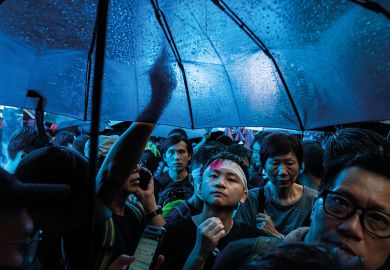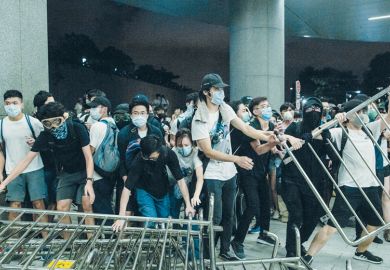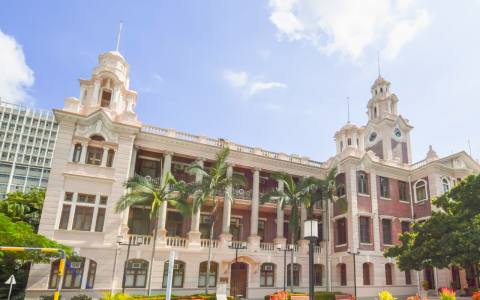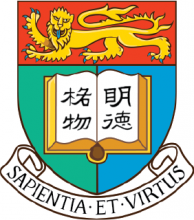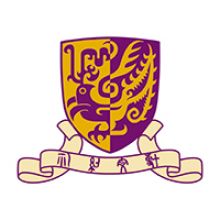Hong Kong university students are turning lecture boycotts into civil disobedience boot camps, as the focus of the months-long protest campaign shifts on to campuses.
Declaring its aim to “boycott classes, not education”, the Hong Kong University Students’ Union has organised a series of public lectures to coincide with the planned two-week boycotts.
Lingnan University cultural studies academic Hui Po-keung was slated to deliver the first lecture, “The cultural politics of emotion on ‘If we burn, you burn with us’”, on 3 September. Benny Tai, the briefly imprisoned University of Hong Kong legal academic who helped initiate the Occupy protests in 2013, was due to follow with a potted history of Hong Kong’s democratic movement.
Meanwhile, the Student Union of the Chinese University of Hong Kong (CUSU) has scheduled classes in subjects including self-defence, “revolt and creativity” and “legal protests, legal rights” during the first two weeks of the semester.
Its move comes after student associations from secondary and tertiary institutions, including 11 universities, declared their intention to boycott classes. “How is it possible, when the government…turns every street and district into battlefields, for us to sit down at our desks like nothing happened?” they said in a statement.
“The class boycott does not mean that students cease learning. Instead we will put ‘boycott classes, continue learning’ into practice. While we stress our demands by refusing to attend normal lessons, we shall commence ‘civic lessons’, allowing students to learn beyond traditional systematic education and become citizen[s] of a democratic society.”
Some Chinese authorities have blamed mandatory civics courses in high school for inflaming the protest movement.
Hong Kong campuses have been largely untouched by the protests, which unfolded during their summer break. That changed emphatically on 2 September when thousands of students converged on the Chinese University’s central mall wearing the protesters’ trademark black uniforms, face masks, helmets and goggles.
University authorities had attempted in vain to persuade the student union to cancel the rally on safety grounds. “Not only is it difficult for the organisers to prevent inadvertent people from entering the campus; the university staff is not [large] enough to cope with the fierce conflicts that may arise from such a large gathering,” the university warned in a media release.
CUSU declined to cancel the rally or an inauguration ceremony that it had planned earlier in the day, in place of an event cancelled by the university. “The right to express our discontent towards the regime through class boycotts should be respected,” the union insisted on Facebook.
“No matter how difficult times are, we shall never surrender and will die fighting for the freedom from fear.”
The University of Hong Kong held a central inauguration ceremony for new students on 29 August, after earlier saying that it would farm out the responsibility to faculties. Addressing his first such event, vice-chancellor Xiang Zhang referred to unrelated allegations of a murder on campus but made no mention of the protest movement.
In a statement, the university said that teaching and learning would proceed on campus as scheduled. “Students have freedom of expression, and students participating in boycotts should be aware of the possible impact on the progress of their learning,” the institution said.
“The right of others who want to attend classes must also be respected. The university will closely monitor the situation to ensure that it can continue with its normal teaching and learning activities.”
Register to continue
Why register?
- Registration is free and only takes a moment
- Once registered, you can read 3 articles a month
- Sign up for our newsletter
Subscribe
Or subscribe for unlimited access to:
- Unlimited access to news, views, insights & reviews
- Digital editions
- Digital access to THE’s university and college rankings analysis
Already registered or a current subscriber?


